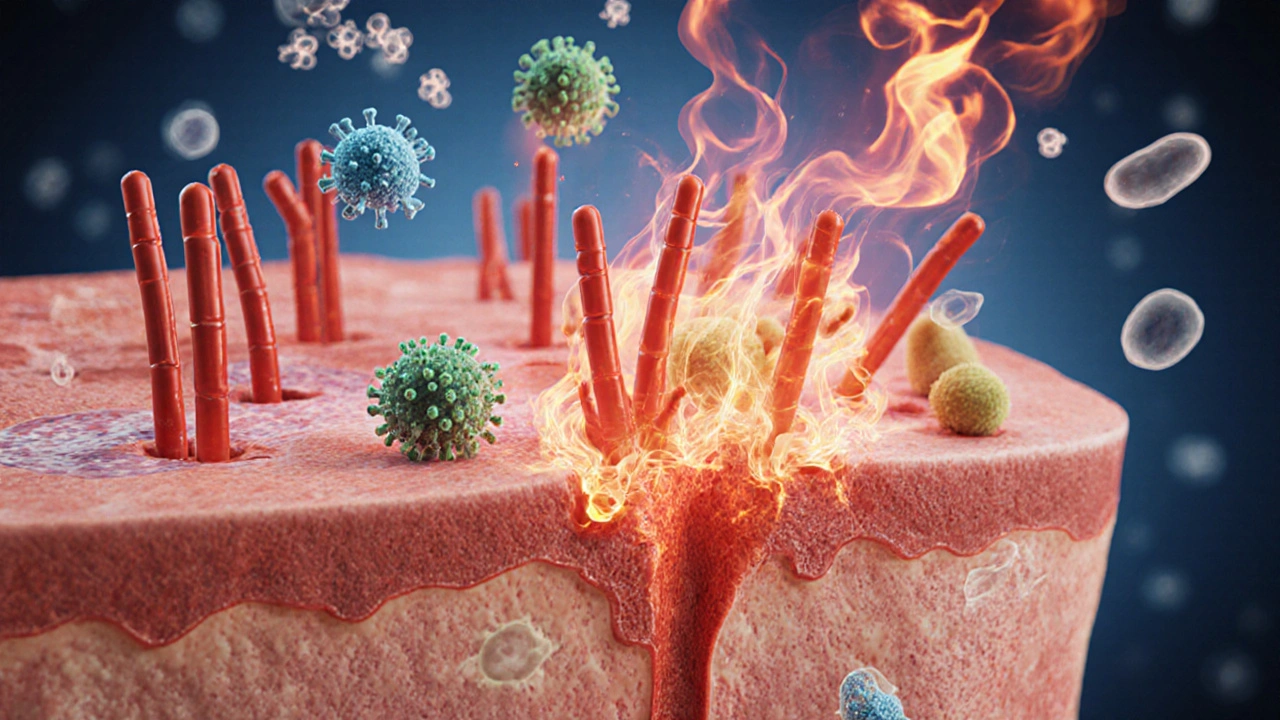Enteric Infections: Causes, Symptoms, and Treatment Options
When you hear about enteric infections, you’re looking at illnesses that hit the gut and can knock you off your feet fast. Enteric Infections, infections of the intestinal tract caused by harmful microbes. Also known as intestinal infections, they range from mild tummy upset to severe dehydration.
Most of these cases start with bacterial pathogens, germs like Salmonella, Shigella, Campylobacter, and pathogenic E. coli. They get into your system through contaminated food, water, or poor hygiene. Once inside, they latch onto the lining of the intestines and release toxins that trigger inflammation. Knowing which bacterial pathogens you’re dealing with helps doctors pick the right test and treatment.
Typical signs include sudden diarrhea, cramping, fever, and sometimes blood in the stool. Dehydration can set in quickly, especially for kids and seniors. Doctors usually confirm an enteric infection with stool cultures or rapid antigen tests, which identify the exact microbe. Early diagnosis means you can start targeted therapy before the illness spirals.
When it comes to clearing the infection, antibiotics, drugs that kill or stop bacterial growth are the main weapon. Not all cases need them—viral gut bugs don’t respond—and overuse can breed resistance. For bacterial causes, doctors weigh factors like the pathogen type, severity, patient age, and allergy history before prescribing the right class—be it a fluoroquinolone, macrolide, or a tetracycline like the generic options we cover in our guides.
After the bacteria are under control, many turn to probiotics, beneficial live microorganisms that help restore gut balance. Research shows certain strains can shorten diarrhea duration and reduce recurrence. Pairing a proper antibiotic course with an appropriate probiotic can smooth the road back to normal digestion, but timing matters—you’ll want to start probiotics a few hours after the antibiotic dose.
Preventing an enteric infection boils down to simple habits: wash hands thoroughly, cook meats to safe temperatures, avoid raw milk, and stay clear of questionable street food when traveling. Clean water, proper food storage, and using separate cutting boards for raw meat versus vegetables cut down the odds dramatically. These steps not only protect you but also curb the spread of resistant bacteria in the community.
Below you’ll find a hand‑picked collection of articles that dive deeper into each of these topics— from the science behind specific antibiotics like tetracycline and Bactrim to practical guides on buying them safely online, plus insights on probiotic use and food‑safety tips. Whether you’re dealing with an active infection or just want to stay ahead, these resources give you the facts and tools you need.
Long-Term Effects of Enteric Infections on Your Body

Explore how enteric infections can cause chronic gut issues, nutrient deficiencies, autoimmune triggers, and increased cancer risk, plus strategies to prevent and recover.
- October 12 2025
- Tony Newman
- 12 Comments
